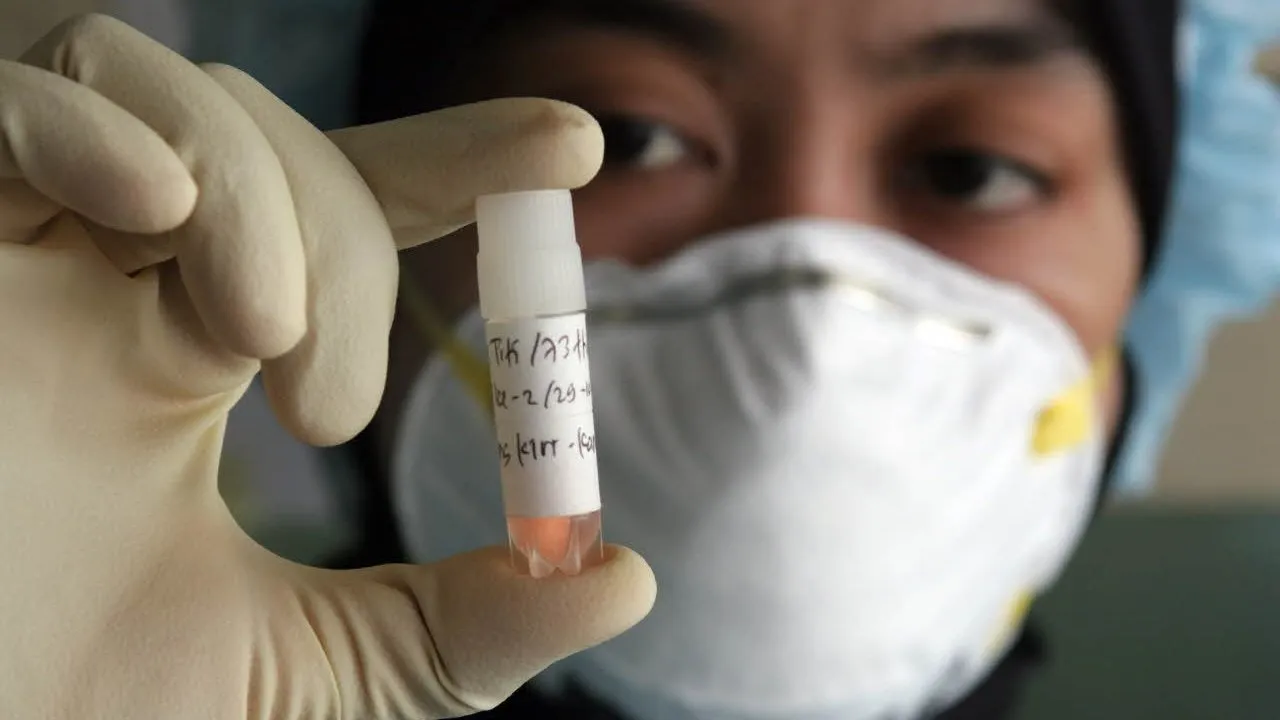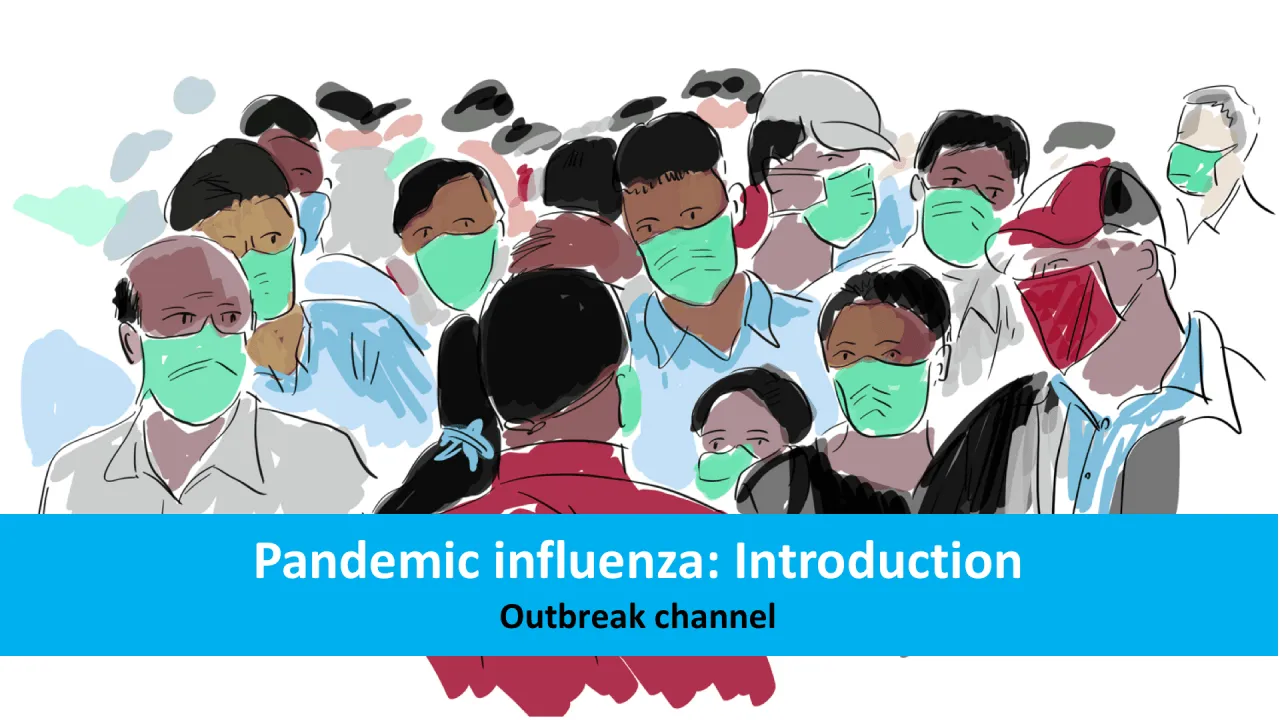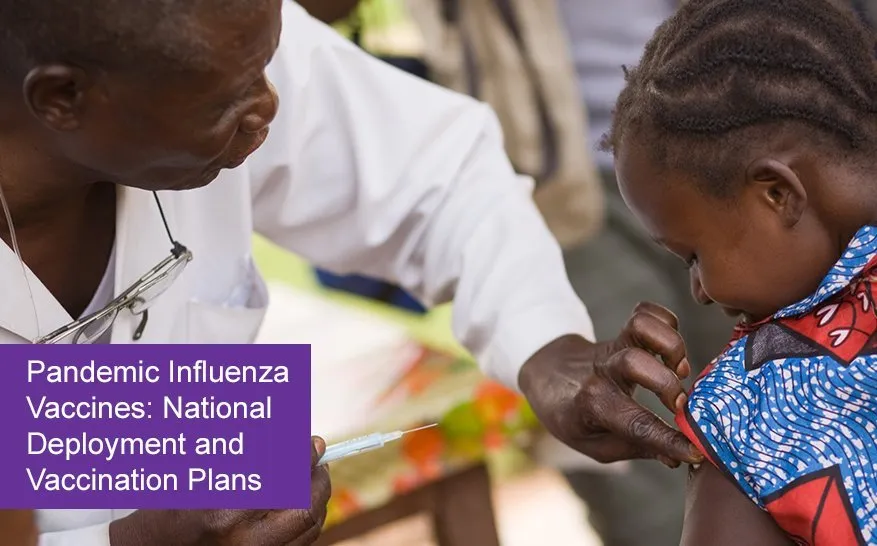
Epidemics Pandemics and Outbreaks 
This course provides an in-depth look at infectious diseases, public health laws, and medical responses. Learn the facts about epidemics, pandemics, and outbreaks, and how to effectively prevent them through quarantine laws, drug development policies, and bioterrorism and biodefense. ▼
ADVERTISEMENT
Course Feature
![]() Cost:
Cost:
Free
![]() Provider:
Provider:
Coursera
![]() Certificate:
Certificate:
Paid Certification
![]() Language:
Language:
English
![]() Start Date:
Start Date:
20th Dec, 2021
Course Overview
❗The content presented here is sourced directly from Coursera platform. For comprehensive course details, including enrollment information, simply click on the 'Go to class' link on our website.
Updated in [March 06th, 2023]
This course provides an overview of epidemics, pandemics, and outbreaks. Students will learn about the public health laws and policies that provide the framework for effective prevention, such as quarantine laws, drug development policies, and bioterrorism and biodefense. Through lectures, discussions, and activities, students will gain an understanding of the facts about infectious diseases and medical responses. They will also explore the strategies that can be used to prevent outbreaks of infectious diseases from becoming epidemics or pandemics. By the end of the course, students will have a better understanding of the public health laws and policies that can help protect us from infectious diseases.
[Applications]
The application of this course can be seen in the implementation of public health laws and policies. These laws and policies can be used to prevent the spread of infectious diseases and to develop effective responses to outbreaks. Additionally, the knowledge gained from this course can be used to inform public health decisions and to create strategies for responding to epidemics and pandemics. Finally, this course can be used to educate the public on the importance of preventive measures and the need for effective responses to infectious diseases.
[Career Paths]
1. Public Health Lawyer: Public health lawyers specialize in the legal aspects of public health, such as quarantine laws, drug development policies, and bioterrorism and biodefense. They work to ensure that public health laws are followed and that the public is protected from infectious diseases. As the world continues to face new and emerging infectious diseases, the demand for public health lawyers is expected to increase.
2. Epidemiologist: Epidemiologists are scientists who study the patterns, causes, and effects of health and disease conditions in defined populations. They investigate the causes of infectious diseases and develop strategies to prevent and control them. With the rise of new and emerging infectious diseases, the demand for epidemiologists is expected to increase.
3. Infectious Disease Physician: Infectious disease physicians specialize in the diagnosis, treatment, and prevention of infectious diseases. They work to identify the source of an infection and develop treatment plans to help patients recover. As the world continues to face new and emerging infectious diseases, the demand for infectious disease physicians is expected to increase.
4. Public Health Educator: Public health educators are responsible for educating the public about infectious diseases and how to prevent them. They work to create awareness and understanding of public health issues and develop strategies to promote healthy behaviors. As the world continues to face new and emerging infectious diseases, the demand for public health educators is expected to increase.
[Education Paths]
1. Public Health: Public health is a field of study that focuses on the health of populations and communities. It involves the study of epidemiology, biostatistics, health policy, environmental health, and health services administration. Public health professionals work to prevent the spread of infectious diseases, promote healthy lifestyles, and develop policies to protect the public from health risks. Developing trends in public health include the use of data analytics to identify health risks, the use of technology to improve access to healthcare, and the use of public-private partnerships to address health disparities.
2. Epidemiology: Epidemiology is the study of the distribution and determinants of health-related states or events in specified populations, and the application of this study to the control of health problems. Epidemiologists use data to identify risk factors for disease, develop strategies to prevent and control disease, and evaluate the effectiveness of interventions. Developing trends in epidemiology include the use of big data to identify health risks, the use of machine learning to predict disease outbreaks, and the use of social media to track the spread of infectious diseases.
3. Biostatistics: Biostatistics is the application of statistical methods to the study of biological phenomena. Biostatisticians use data to develop models to predict the spread of infectious diseases, evaluate the effectiveness of interventions, and identify risk factors for disease. Developing trends in biostatistics include the use of data mining to identify health risks, the use of artificial intelligence to predict disease outbreaks, and the use of predictive analytics to improve public health outcomes.
4. Health Policy: Health policy is the study of the laws, regulations, and other policies that govern the health care system. Health policy professionals work to develop policies that promote access to health care, protect the public from health risks, and improve the quality of health care. Developing trends in health policy include the use of evidence-based policymaking to improve public health outcomes, the use of technology to improve access to health care, and the use of public-private partnerships to address health disparities.
Course Syllabus
Week 1: Introduction
Welcome to Week One! This week’s lesson immerses you in the world of epidemics, pandemics and outbreaks and our efforts to prevent and respond to them. It will prepare you to engage in depth with the lessons that are coming up in weeks 2-4: "Understanding Infectious Diseases," "Global Health Security," and "Local Countermeasures."Week 2: Understanding Infectious Diseases
Welcome to Week Two! This week’s lesson provides you with the tools needed to understand the world of infectious disease. It will allow you to develop a context of knowledge and familiarity with the concepts that inform legal and public health response strategies to outbreaks, epidemics and pandemics. What you learn here will be drawn upon in weeks 3-4: “Global Health Security” and “Local Countermeasures.”Week 3: Global Health Security
Week 4: Local Countermeasures
Welcome to Week 3! Now that you are more familiar with the nature and history of infectious disease, consider the following quote from Natalie Angier, American nonfiction writer and a science journalist for The New York Times: “Today, diseases as common as the cold and as rare as Ebola are circling the globe with near telephonic speed, making long-distance connections and intercontinental infections almost as if by satellite. You needn't even bother to reach out and touch someone. If you live, if you're homeothermic biomass, you will be reached and touched. Microbes are, after all, members of the most ancient, zealous and Darwinically gilded 24-7 delivery consortium. They travel by land, sea, air, nose, blows, glove, love, sewage, steerage, rat backs, hat racks, uncooked burritos, overlooked mosquitoes. And, oh, how they love the global village.” Indeed, the same forces of globalization that have lowered barriers to global communication, travel, and commerce have amplified the ability for infectious diseases to spread internationally. In many ways, defense against this common threat is only as strong as each nation’s ability to prevent, detect, and respond to infectious disease threats, and the collective ability of the international community to coordinate these capacities multilaterally.Course Provider

Provider Coursera's Stats at AZClass
Epidemics Pandemics and Outbreaks provides an in-depth looks at infectious diseases, public health law, and medical countermeasures. Learn the facts about epidemics, epidemics, and outbreaks and how to effectively prevent them through quarantine laws, drug development policy, bioterrorism, and biodefense. In this course, learners will develop an understanding of infectious diseases, public health law and policy, and medical countermeasures. They will learn about quarantine law, drug development policy, bioterrorism and biodefense, and how to prevent outbreaks from becoming epidemics or epidemics.
Discussion and Reviews
0.0 (Based on 0 reviews)
Explore Similar Online Courses

Essentials of Biomolecules : Nucleic Acids and Peptides

The Science of Parenting

Python for Informatics: Exploring Information

Social Network Analysis

Introduction to Systematic Review and Meta-Analysis

The Analytics Edge

DCO042 - Python For Informatics

Causal Diagrams: Draw Your Assumptions Before Your Conclusions

Whole genome sequencing of bacterial genomes - tools and applications

Pandemic and epidemic-prone diseases

Pandemic influenza: Introduction


Start your review of Epidemics Pandemics and Outbreaks